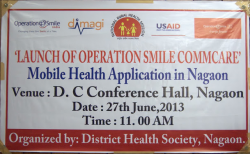Many healthcare organizations are embracing cloud computing to improve data analytics efficiency and reduce administrative costs. The cloud lets healthcare professionals access patient information from any Wi-Fi-enabled device at any location.
This ease of access makes it easier for health practitioners, medical facilities, and insurance companies to quickly share patient data. Emergency responders can provide patient care faster by accessing critical health information offsite. Physicians can review new patients’ entire medical histories online without waiting for physical records to be transferred. Patients can have direct access to their health records online. The sharing of information through the cloud reduces administrative costs because of the reduced need for paper records.
These advantages and more have led to the growing popularity of cloud computing in the health care industry. However, cloud computing can only be successful if the cloud is secure and patient privacy is protected.
Importance of Cloud Security
Cloud security is important to protect patient privacy, comply with health care laws, and ensure that only authorized health care professionals access the correct data. Some health organizations are hesitant to adopt cloud computing because of the complexity of structuring cloud computing to comply with the Health Insurance Portability and Accountability Act (HIPAA), which regulates how health organizations protect private healthcare information. Others are resistant to adopting cloud computing due to concerns over unauthorized access to data. Patients are not always viewing their medical records online due to network security concerns.
A successful cloud healthcare network must use data security measures that comply with HIPAA, prevent unauthorized access, and protect authentic patient data. There must be no doubt of the authenticity of patient data, which can make the difference in effective medical treatment. Both healthcare professionals and patients must trust the cloud network security to protect personal data for it to work. Effective cloud security will gain this vital trust.
Challenges of Cloud Security
Effective cloud security must address key challenges in the following areas:
Preventing unauthorized access: It is critical that only authorized users access data in a healthcare cloud. This can be tricky in a virtual environment with so many remote users and multiple Wi-Fi devices.
Accessing data safely from mobile devices: Health professionals and patients should be able to access data securely from mobile devices like cell phones, tablets, or laptops. If network security isn’t optimal, vulnerable data could be lost or stolen when accessed through an unsecured mobile device.
Protecting databases from malware and attacks: A cloud must have a secure database that effectively protects against cyber attacks and malware. Some popular security components like open-source software, which played a role in the Heartbleed bug breach at Community Health Systems, are not the safest options. It is also important to have an incident repair and response system in place to respond quickly to block any attacks or breaches.
Preventing data loss: A cloud has to have a good system to prevent data loss and a way to retrieve lost data when possible. A cyber attack, an encryption error, or a natural disaster are some of the ways data could be lost.
Overcoming Cloud Security Challenges
The healthcare industry can trust cloud computing to be a secure and effective tool to deliver professional services, share data, and store patient data. The key challenges to cloud network security can be overcome with encryption, two-factor identification, and security intelligence.
Encryption: Encryption changes data into a secure format that only an authorized user with the correct encryption key can access. Data should be encrypted when it is in use, in transit, and at rest to make sure that the data is unreadable if it is lost or stolen. Split-key encryption provides even greater network security because it is protected by two encryption keys, which are held by the healthcare organization and the cloud service provider. Both keys must be used in order to access data.
Two-factor identification: Unique usernames and passwords aren’t enough to identify authorized users. Requiring a second form of identification like a fingerprint or specialized software token adds an extra layer of security to ensure only authorized users access the cloud data.
Security intelligence system: An effective security intelligence system that monitors the logs of all of the cloud servers and firewalls for any unusual activities can identify and block cyber attacks and malware and prevent potential data breaches or data loss.
With effective network security, cloud computing can revolutionize the healthcare industry by making it easier for health professional to share critical data, giving patients greater control over their own health records and making the healthcare workplace more efficient.








